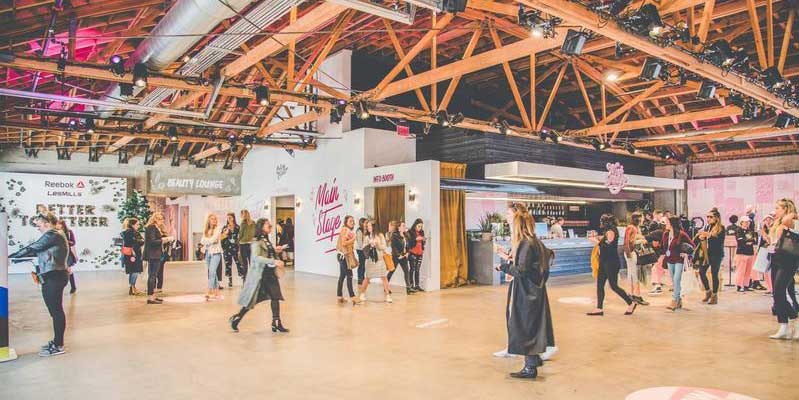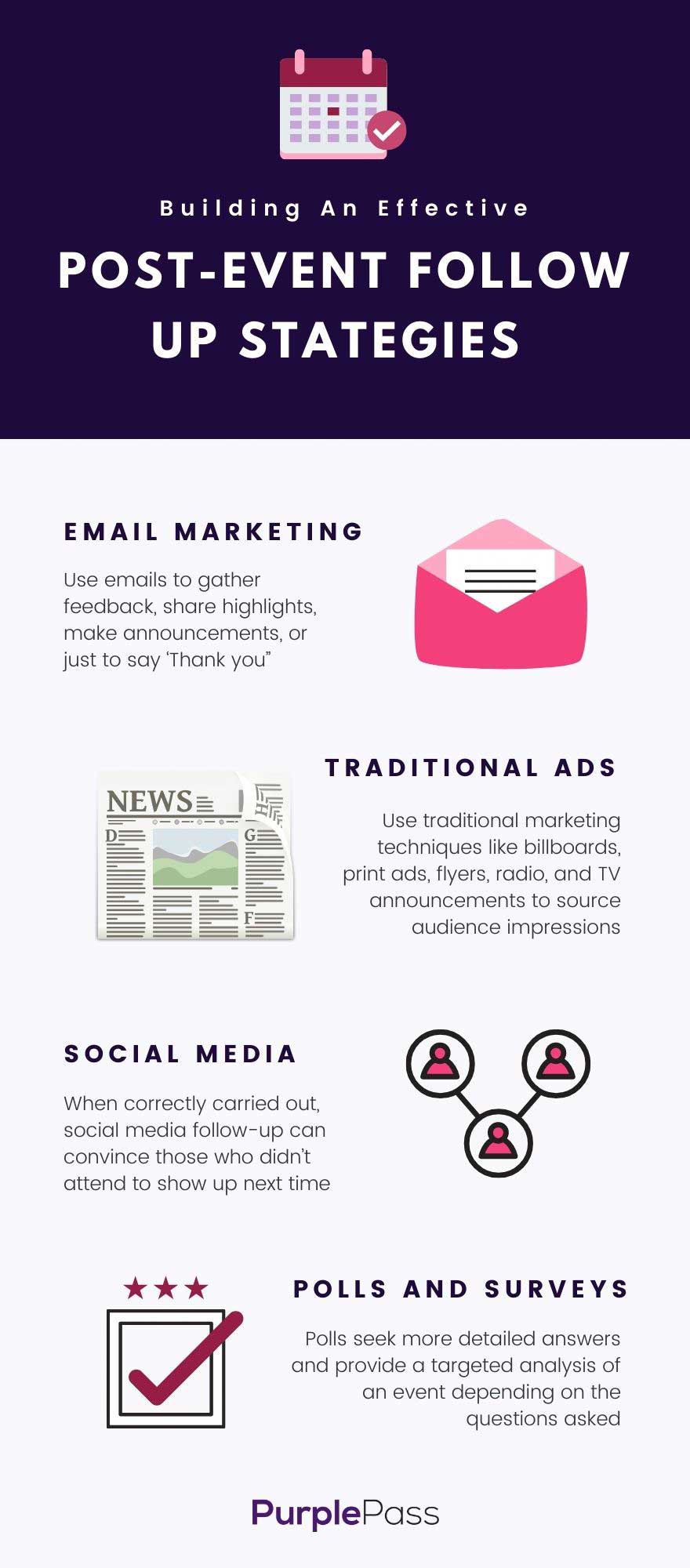Tips on Building an Effective Post-Event, Follow Up Plan
You just organized a very successful event, and almost everything went on as planned. But, now you're wondering—what next?
Well, first of all, congratulations. Take a deep breath because the most challenging bit over. Planning an event is no walk in the park. However, as you're celebrating the success, there's one more crucial thing to do; post-event follow up.
Post-event follow up is arguably one of the most critical stages in your event program. It's the point where you solidify brand awareness, maximize the buzz from the event, and nurture more prospects down the funnel. So, in today's article, we focus on why following up with customers after an event is essential and provides tips on doing it right.
Top reasons to conduct a follow up
When correctly done, post-event follow-up can help you attract and keep more loyal customers.
Here’s why:
1. It's a chance to thank your customers
Clients love to be appreciated. In the follow-up process, you have the opportunity to remind them of how much you value their support.
Thank them for dedicating their time and money to attend your event. Doing so helps you build a loyal client base that prides itself on being associated with you. You can also use this opportunity to invite them to your next event or ask them to stay put for the following big announcement.
2. Keeps the buzz alive after the event
Every organizer wants people to continue talking about their event even after it’s over. The bigger and more prolonged the post-even buzz is, the greater the publicity and brand awareness.
Following up with attendees will trigger them to share their impressions online, hence keeping the talk alive. You can even send emails with links redirecting them to your social media pages or asking them to share their experiences online.
A typical follow-up technique to keep people talking about events is organizing trivia and online contests. If it was a music concert, for example, you could ask them the order in which the artists performed and give a prize to the first few correct answers.
3. Great for data collection and customer profiles
By following up with your prospects and clients, you get to know about their impressions of the event or the reasons they didn’t attend.
This helps you clearly understand their positions in your funnel and identify the best marketing approach to use. If a customer is very responsive, for instance, you can pool them with other active users and send them frequent marketing materials.
4. Gain valuable feedback that prepares you for the next event
Event planning is a continuous learning process.
The best organizers are willing to learn from their experiences, and that’s what follow-up enables you to do. It allows you to ask your clients what they think about your event. You can then identify what you did right and areas that need adjustments before the next event.
5. Another chance to reach out to prospects
Follow-up is not limited to just those who attended the event.
Actually, focus most of your efforts on those who didn’t show up. Try to understand why they didn’t come, and how you can help them attend the next event.
One of the common reasons is that emails sometimes get ignored. Maybe your mails went to the spam folder, got overshadowed by other emails, or didn’t arrive on time to allow the audience to attend the event. Whatever the reason, find out how to improve your email communication to convert the prospects into customers.
Most marketers shy from following up with those who don’t show up or reply to emails because of the fear of coming across as being too pushy. However, the truth is that the more you email your prospects, the more you make them aware of your brand. It also reinstates your undying desire to work with them.
So, while your efforts may not convert into immediate sales, persistent follow-up is a great way to arouse prospect’s interests gradually. Who knows—maybe by the time you’re holding your next event, you shall have convinced them.
Effective post-event follow up strategies
Depending on your audience’s demographic, you may use either of or a combination of the following follow up techniques:
Email marketing
Here, you send emails to your attendees asking them to share their thoughts about the event. It’s the most common technique, and you can combine it with all the others.
Through emails, you can also find out why some prospects didn’t show up and areas that you may need to work on before another event.
Follow up ideas for email marketing:
- Event highlights (media)
- Asking for feedback
- Announcing a contest or contest winner
- Ticket giveaway for another, upcoming event
- Announcements
- A 'thank you' email
- Merchandise sales (catalogs)
Traditional marketing
You can also use traditional marketing techniques like billboards, print ads, flyers, radio, and TV announcements to source audience impressions about your event.
For handouts and brochures, for example, you don’t have to wait until the event ends. You can use them to get feedback even as the event continues.
Social media marketing
Social media marketing is arguably the most influential events follow-up strategy.
Before the event ends, remind the attendees to follow your social media pages for updates or use an event hashtag. You can then later use these channels to ask for their reviews and share some memorable moments of the event. It’s also common for organizers to have post-event social media contents to keep the buzz alive.
You can ask them questions like the event’s them, those who performed formed, or specific highlights and reward correct responders. When correctly carried out, social media follow-up can even convince those who didn’t attend to show up next time.
Polls and surveys
Here, you ask the audience to rate your event or give their thoughts on specific highlights in pre-designed forms. Polls seek more detailed answers and provide a more targeted analysis of the event.
Whatever technique you opt to use, organize it in advance, preferably before the event, and ensure that the follow-up is timely. Also, good content is vital—do not just use some generic follow-up message for all your campaigns.
Instead, research and come up with more targeted messages.






